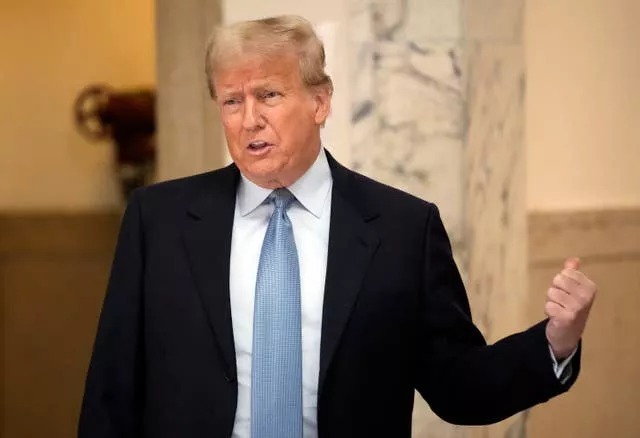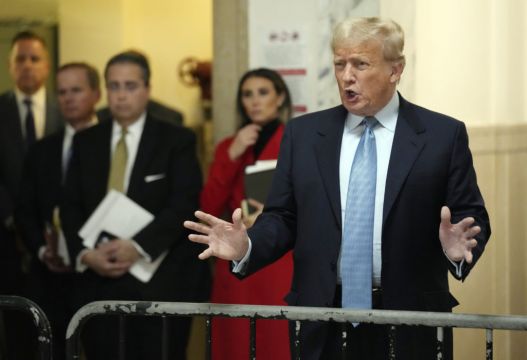Federal prosecutors said Donald Trump is “not above the law” as they urged a judge to reject the former president’s efforts to dismiss charges of plotting to overturn the 2020 presidential election.
Lawyers for Mr Trump had asked US district judge Tanya Chutkan earlier this month to throw out the federal election subversion case, arguing he was immune from prosecution for actions he took while fulfilling his duties as president.
Special counsel Jack Smith’s team responded in papers filed on Thursday that there is nothing in the Constitution, or in court precedent, to support the idea Mr Trump or any other former president cannot be prosecuted for criminal conduct committed while in the White House.

Prosecutors wrote: “The defendant is not above the law. He is subject to the federal criminal laws like more than 330 million other Americans, including members of Congress, federal judges, and everyday citizens.”
If defence lawyers fail to persuade Ms Chutkan, they will have the opportunity to press their arguments before a federal appeals court or, ultimately, a Supreme Court with a clear conservative majority.
The latest legal move comes as lawyer Sidney Powell pleaded guilty to reduced charges over efforts to overturn Mr Trump’s loss in the 2020 US election in Georgia, becoming the second defendant to reach a deal with prosecutors.
Ms Powell, who was charged alongside Mr Trump and 17 others with violating the state’s anti-racketeering law, entered the plea a day before jury selection was set to start in her trial.
Mr Trump was charged in August in a four-count indictment in federal court in Washington with scheming to overturn the election that he lost to Democrat Joe Biden in the run-up to January 6 2021, when pro-Trump rioters stormed the US Capitol in a violent but failed effort to halt the transfer of power.

The Supreme Court has held that presidents are immune from civil liability for actions related to their official duties but it has never addressed the question of whether that immunity shields a president from criminal prosecution.
Mr Trump’s defence lawyers have seized on the absence of rulings to make the case that he must be considered exempt from prosecution, arguing that the the actions he’s accused of taking fall within the bounds of the presidency.
But prosecutors rejected that argument on multiple grounds, saying the steps Mr Trump took to stay in power — including by advancing false claims of voter fraud in an effort to block the formal counting of electoral votes — are well outside Oval Office duties and responsibilities.
They also said Mr Trump’s claims of immunity directly conflict with the nation’s Constitution, which allows for the criminal prosecution of a president for “acts committed during — and ultimately resulting in the president’s removal from — the presidency.”
“The defendant, however, would turn the Impeachment Judgment Clause on its head and have the Court read it as a sweeping grant of immunity that forbids criminal prosecution in the absence of a Senate conviction — which, among other things, would effectively preclude any form of accountability for a president who commits crimes at the end of his term of office,” prosecutors said.
The case, currently set for trial on March 4, 2024, is one of four criminal prosecutions that the former president is facing.







